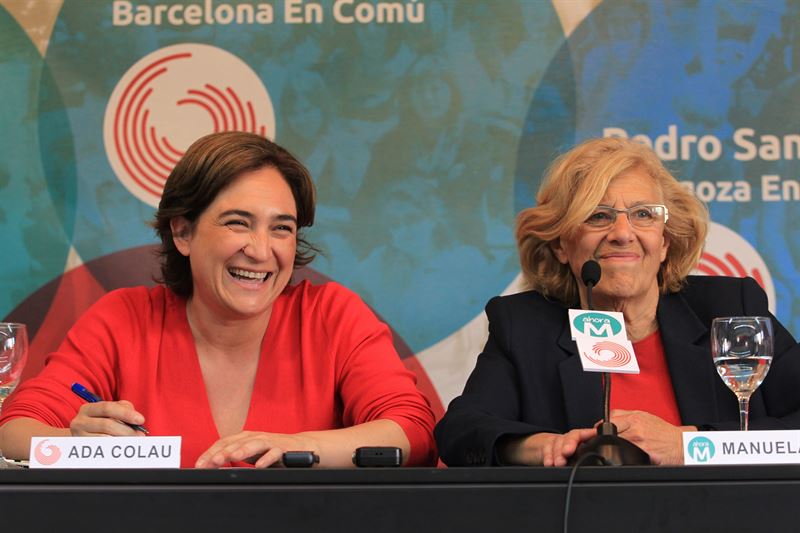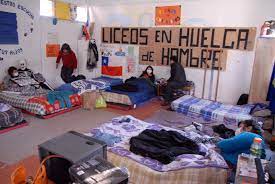
Spanish cities voted, and now two feminist, progressive, anti-austerity, anti-eviction, lifelong activist women are set to become mayors of Barcelona and Madrid: Ada Colau and Manuela Carmena. “It’s the victory of David over Goliath”, said Ada Colau, although this time it’s the victory of Deborah over Goliath. Before the elections, Ada Colau and Manuela Carmena may have been symbols of change, but the people’s vote changed all that. Now they are not only the embodiments of a Spanish Spring of Change, they are the harbingers of a global Urban Spring. Indignons-nous!
After casting her vote in Madrid, Manuela Carmena said, “Each one of us has an enormous potential for change; each one of us can decide the fate of our city. We can change the world.” And she should know. 71 years old, Manuela Carmena has been fighting the good fight for years. A former member of the Communist Party, she fought for human rights, women’s rights, workers’ rights and prisoners’ rights during the Fascist regime. Manuela Carmena served as a judge, and was widely recognized as a leading progressive and anti-corruption jurist. She was a founder of Jueces para la Democracia, Judges for Democracy. When called upon by the Ahora Madrid coalition to come out of retirement to run for office, she immediately agreed. Her platform focused on guaranteeing basic utilities, such as water and electricity, to all households; guaranteeing universal access to healthcare services; and developing an emergency job creation plan for the young and long-term unemployed. At the heart of her campaign was the human heart, the recognition of the centrality of the people, the individuals and communities that comprise Madrid.
Likewise, Ada Colau is well known as the founder and face of the Plataforma de Afectados por la Hipoteca, PAH, the Platform for People Affected By Mortgages. She began the anti-eviction organization and movement in 2009, in response to a spike in evictions. Immediately, Colau saw that the evictions had nothing to do with the so-called real estate market crash. Instead, they resulted from mortgage clauses, organized by realtors and banks, that virtually ensured mass evictions, sooner or later. In 2008, later came sooner, and in 2009, Ada Colau roared onto the scene, organizing local and mass anti-eviction direct actions, stopping evictions; restoring individuals, families, and communities to decent housing; and addressing the collusion of local municipal agencies, in this case in Barcelona. Colau highlighted the individual and mass evictions as part of Barcelona’s program for `urban redevelopment’. Sound familiar?
What may be unfamiliar is Colau’s vision of urban development: “Barcelona could become a world reference as a democratic and socially just city. Barcelona has the resources, the money and the skills. The only thing that has been missing to date has been the political will.”
What may be even more unfamiliar is this: victory! Ada Colau, of Barcelona en Comú, and Manuela Carmena, of Ahora Madrid, won. They won because they organized and people responded to their campaigns. They won because they courageously rejected the logic, and the violence, of austerity, exclusion, expulsion, and “urban redevelopment”. They not only said another city is possible, they lived it. Now they are set to become mayors of Barcelona and Madrid, respectively.
As the commercial says, “What’s in your wallet?” What’s in your city’s wallet? How much violence are we, in our various municipalities, willing to countenance in the name of “urban redevelopment”? In Spain, women indignadas have had more than enough. They have organized, and are organizing, and are calling for a Spanish Spring, and a Global Urban Spring. Podemos. We can do it.
(Photo Credit: Publico)

